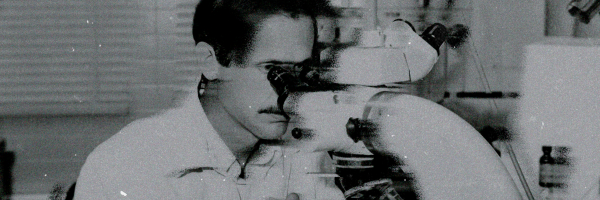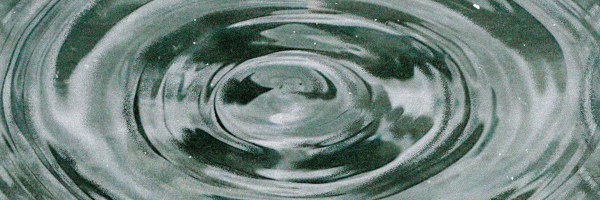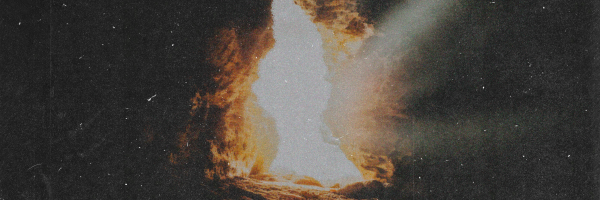DOES BEING A CHRISTIAN MEAN I DON'T BELIEVE IN SCIENCE?
DOES BEING A CHRISTIAN MEAN I DON'T BELIEVE IN SCIENCE?

No. Many scientists are committed Christians and our scientific findings have become strong evidence for the existence of God.
1. MANY SCIENTISTS ARE ALSO COMMITTED CHRISTIANS.
Historically, many important scientists have professed to be Christians including Francis Bacon, the man credited with being the father of the scientific method! There are also many modern scientists who, despite their strong commitment to science, find Christianity to be deeply intellectually satisfying. Two examples are Alister McGrath (listen here to his conversion story) and John Lennox (listen to his story here). Both are professors at Oxford.
2. SCIENCE PROVIDES STRONG EVIDENCE FOR GOD.
Science has provided much data that is best explained by God’s existence. Here are six examples:
1. THE ORIGIN OF THE UNIVERSE - Cosmology
-
- An extremely popular view among scientists today is that the universe has not always existed. If this is correct, how did the universe come into existence, especially if it was from absolutely nothing?
- This is best explained by a supernatural cause, with God being the best contender for that role. (Watch video)
2. THE NARROW CONDITIONS FOR LIFE - Cosmology/Biology
-
- Science has demonstrated that the conditions for life to exist in the universe are so astonishingly improbable that for these conditions to be met seems to be basically impossible by mathematical standards.
-
- The existence of a divine creator best accounts for why life could exist. (Watch video)
3. THE APPEARANCE OF DESIGN - Biology
-
Humans are intuitively able to recognize designs, even very simple ones (picture). The more we learn about the astonishing abilities and behaviors of many animals and their radical diversity, the harder it is to believe that all of the creatures developed such amazing abilities through mutations and natural selection.
-
These facts are best explained by inferring a supernatural, intelligent designer. (Watch video)
4. IRREDUCIBLE COMPLEXITY - Biology
-
Many biological systems require complex machinery to work correctly, and if even one part of the machine is missing, the entire system fails.
-
Such systems are difficult to explain through natural selection or isolated random mutations, as such processes cannot explain all of the biological developments that would need to happen for a biological machine to work. Mutations have further limitations because they cause DNA to lose material and are almost always harmful.
-
Because of these challenges, the presence of a skillful designer is the best way to explain the evidence. (Watch video)
5. DNA - Genetics
-
Our discovery of DNA has revealed a complex system of information that is organized and used much like a computer would. These biological blueprints point to the creativity and planning of a designer. Organized information is not produced by natural processes but by an intelligent mind. Watch video
6. SPONTANEOUS CELLULAR REGENERATION - Cytology/Medical Science
-
Carefully documented health cases have revealed recoveries that are not only inexplicable by current science, but should be directly contradicted by our best scientific research.
-
For example, Duane Miller had his vocal chords ravaged by a virus and was studied by many of the world’s leading doctors for many years. His vocal chords suddenly spontaneously regenerated, removing even the trace of scar tissue. This happened entirely without expectation not as part of some emotional experience where Duane was expecting to be healed. Listen to this miraculous healing take place here (healing begins at 1:34) and read about it here.
-
For more examples of medically-documented miracles, please read Lee Strobel’s The Case for Miracles.
This is just some of the mountains of scientific evidence for God’s existence. To learn more about the strength of this material, see our article Can Anyone Prove God Exists.
3. SCIENCE DOES NOT DISPROVE CHRISTIANITY.
Of course, for all of the scientific evidence that points to God, there is other evidence that has been offered as evidence against his existence. While not exhaustive, let’s look at four common objections to Christianity from science and look at the responses to them:
1. Does evolution disprove Christianity?
-
- No. Although many Christians today have mixed opinions about the subject of evolution, they generally are mostly concerned about macroevolution, or the belief that one species can evolve into a more complex one. Changes within species, also known as “microevolution,” is not an issue for most Christians. Many Christians believe that better science has demonstrated that macroevolution is wrong and deeply flawed. Problems with evolutionary theory are well-documented even from non-religious sources.
2. Do Christians believe silly things like the earth is flat or that the sun revolves around the earth?
-
- No. The Bible does not teach either of these views. Almost no Christians would hold these views today. Christians do not believe that the earth is flat. Christians do not believe that the sun revolves around the earth.
3. Does scientific research contradict the biblical account of Noah and the flood?
-
- No. Christians have persuasively shown that the fossil record is best explained by a massive, relatively sudden, chaotic flood (which, incidentally, also is evidence for a creator).
4. Hasn’t science proven that miracles can’t happen?
-
- No. As noted above, Science has actually provided strong evidence for the reality of miracles precisely because it cannot explain phenomena such as the origin of the universe and spontaneous cellular regeneration. Strictly speaking, the belief that miracles cannot occur is not scientific at all, but philosophical. This belief is called naturalism. Naturalism is very difficult to defend. If even one of the literally countless reports of miraculous events throughout history proves to be correct, naturalism fails. Moreover, ruling out the possibility of miracles is a poor way to discover what is really true.
It is important to remember that it is impossible for science to rule out the possibility of God’s existence. Scientists and atheists alike should acknowledge the limitations of science. Because science is focused on explaining natural phenomena through repeatable experiments, an all-powerful, divine being like God would not be able to be measured or understood through its methods.
Finally, science only makes sense if there is a God. Science assumes there is a rational order behind the physical universe, and that there are certain laws like gravity that govern its reality. It assumes that man with his mind can understand many of these realities. Yet if all of this came about through random chance and blind mutation, why should there be any rational order to the cosmos? Why would there be laws like gravity that govern its reality? Why would everything not be random chaos instead? And how would our minds, themselves the product of random chance and blind mutation, have the ability to know anything at all? So, science owes its existence to God.

No. Many scientists are committed Christians and our scientific findings have become strong evidence for the existence of God.
1. MANY SCIENTISTS ARE ALSO COMMITTED CHRISTIANS.
Historically, many important scientists have professed to be Christians including Francis Bacon, the man credited with being the father of the scientific method! There are also many modern scientists who, despite their strong commitment to science, find Christianity to be deeply intellectually satisfying. Two examples are Alister McGrath (listen here to his conversion story) and John Lennox (listen to his story here). Both are professors at Oxford.
2. SCIENCE PROVIDES STRONG EVIDENCE FOR GOD.
Science has provided much data that is best explained by God’s existence. Here are six examples:
1. THE ORIGIN OF THE UNIVERSE - Cosmology
- An extremely popular view among scientists today is that the universe has not always existed. If this is correct, how did the universe come into existence, especially if it was from absolutely nothing?
- This is best explained by a supernatural cause, with God being the best contender for that role. (Watch video)
2. THE NARROW CONDITIONS FOR LIFE - Cosmology/Biology
- Science has demonstrated that the conditions for life to exist in the universe are so astonishingly improbable that for these conditions to be met seems to be basically impossible by mathematical standards.
- The existence of a divine creator best accounts for why life could exist. (Watch video)
3. THE APPEARANCE OF DESIGN - Biology
-
Humans are intuitively able to recognize designs, even very simple ones (picture). The more we learn about the astonishing abilities and behaviors of many animals and their radical diversity, the harder it is to believe that all of the creatures developed such amazing abilities through mutations and natural selection.
-
These facts are best explained by inferring a supernatural, intelligent designer. (Watch video)
4. IRREDUCIBLE COMPLEXITY - Biology
-
Many biological systems require complex machinery to work correctly, and if even one part of the machine is missing, the entire system fails.
-
Such systems are difficult to explain through natural selection or isolated random mutations, as such processes cannot explain all of the biological developments that would need to happen for a biological machine to work. Mutations have further limitations because they cause DNA to lose material and are almost always harmful.
-
Because of these challenges, the presence of a skillful designer is the best way to explain the evidence. (Watch video)
5. DNA - Genetics
-
Our discovery of DNA has revealed a complex system of information that is organized and used much like a computer would. These biological blueprints point to the creativity and planning of a designer. Organized information is not produced by natural processes but by an intelligent mind. Watch video
6. SPONTANEOUS CELLULAR REGENERATION - Cytology/Medical Science
-
Carefully documented health cases have revealed recoveries that are not only inexplicable by current science, but should be directly contradicted by our best scientific research.
-
For example, Duane Miller had his vocal chords ravaged by a virus and was studied by many of the world’s leading doctors for many years. His vocal chords suddenly spontaneously regenerated, removing even the trace of scar tissue. This happened entirely without expectation not as part of some emotional experience where Duane was expecting to be healed. Listen to this miraculous healing take place here (healing begins at 1:34) and read about it here.
-
For more examples of medically-documented miracles, please read Lee Strobel’s The Case for Miracles.
This is just some of the mountains of scientific evidence for God’s existence. To learn more about the strength of this material, see our article Can Anyone Prove God Exists.
3. SCIENCE DOES NOT DISPROVE CHRISTIANITY.
Of course, for all of the scientific evidence that points to God, there is other evidence that has been offered as evidence against his existence. While not exhaustive, let’s look at four common objections to Christianity from science and look at the responses to them:
1. Does evolution disprove Christianity?
- No. Although many Christians today have mixed opinions about the subject of evolution, they generally are mostly concerned about macroevolution, or the belief that one species can evolve into a more complex one. Changes within species, also known as “microevolution,” is not an issue for most Christians. Many Christians believe that better science has demonstrated that macroevolution is wrong and deeply flawed. Problems with evolutionary theory are well-documented even from non-religious sources.
2. Do Christians believe silly things like the earth is flat or that the sun revolves around the earth?
- No. The Bible does not teach either of these views. Almost no Christians would hold these views today. Christians do not believe that the earth is flat. Christians do not believe that the sun revolves around the earth.
3. Does scientific research contradict the biblical account of Noah and the flood?
- No. Christians have persuasively shown that the fossil record is best explained by a massive, relatively sudden, chaotic flood (which, incidentally, also is evidence for a creator).
4. Hasn’t science proven that miracles can’t happen?
- No. As noted above, Science has actually provided strong evidence for the reality of miracles precisely because it cannot explain phenomena such as the origin of the universe and spontaneous cellular regeneration. Strictly speaking, the belief that miracles cannot occur is not scientific at all, but philosophical. This belief is called naturalism. Naturalism is very difficult to defend. If even one of the literally countless reports of miraculous events throughout history proves to be correct, naturalism fails. Moreover, ruling out the possibility of miracles is a poor way to discover what is really true.
It is important to remember that it is impossible for science to rule out the possibility of God’s existence. Scientists and atheists alike should acknowledge the limitations of science. Because science is focused on explaining natural phenomena through repeatable experiments, an all-powerful, divine being like God would not be able to be measured or understood through its methods.
Finally, science only makes sense if there is a God. Science assumes there is a rational order behind the physical universe, and that there are certain laws like gravity that govern its reality. It assumes that man with his mind can understand many of these realities. Yet if all of this came about through random chance and blind mutation, why should there be any rational order to the cosmos? Why would there be laws like gravity that govern its reality? Why would everything not be random chaos instead? And how would our minds, themselves the product of random chance and blind mutation, have the ability to know anything at all? So, science owes its existence to God.




